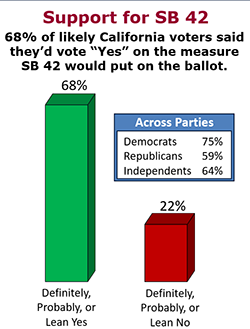Upon counsel's advice, political operative Joel Fox
declined to discuss the $11 million that was funneled to
his political action committee last fall, other than to say
he had done nothing wrong, and that he had received a
subpoena from the Fair Political Practices Commission.
The November election is history. Voters rejected
Proposition 32, the anti-union initiative that was supposed
to benefit from the $11 million. Labor is going about its
business of tapping members for future political
campaigns.
But ever so slowly, FPPC investigators are pulling on
threads, trying to unravel the mystery and lies behind the
$11 million in laundered campaign money that flooded into
California three weeks before the November election.
Slowly, the story is emerging. It involves some of the most
influential and unlikely players in Sacramento. The case is
complex, leading from Sacramento to Virginia to Arizona and
back to California. It's a prime example of the need for
stricter campaign disclosure laws in California and other
states.
Recall the circuitous route the money took: On Oct. 16, Fox
disclosed that Americans for Responsible Leadership, an
Arizona not-for-profit group that had never played in
California politics, gave $11 million to Fox's Small
Business Action Committee to promote Proposition 32, and
oppose Gov. Jerry Brown's tax hike measure, Proposition
30.
On Nov. 5, the day before the election and after the FPPC
had sued to force more complete disclosure, Fox filed an
amended report with the secretary of state's office
revising the story of how the money got into the Small
Business committee treasury.
In the new disclosure, Fox reported that Americans for Job
Security, based in Virginia, was the source of the money -
although Americans for Job Security still has not filed the
proper forms with California authorities identifying it as
a source of the $11 million.
Evidently to cloak the source of the money, Americans for
Job Security sent the $11 million to another not-for-profit
shell, the Center to Protect Patients' Rights, of Arizona,
which passed it to its Arizona neighbor, Americans for
Responsible Leadership.
The question remains: where did Americans for Job Security
get the $11 million? Suspects include billionaires who
spent hundreds of millions to defeat President Barack
Obama. Part of the answer lies closer to home.
The trade group American Council of Engineering
Companies-California long has battled the union that
represents Caltrans engineers. The trade group provided a
clue last week by disclosing in a campaign finance report
that it gave $400,000 to Americans for Job Security last
summer and fall, the biggest donations by the group in a
decade.
Paul Meyer, the Sacramento-based director of the trade
group, told me that Jeff Miller, a major fundraiser for
Republican causes, solicited the money from him on behalf
of Americans for Job Security.
Miller is a behind-the-scenes player who is influential, in
large part because he is so skilled at raising money. He
keeps a Sacramento office, but recently moved to Austin,
Texas, where he has made waves by trying to lure California
businesses to the Lone Star State.
"He was the guy we communicated with," Meyer said.
Meyer added that he knew the money would be for "issue
advocacy" related to an overhaul of the campaign finance
system, but was unaware that it would be used to back
Proposition 32, a measure that promoters tried to portray
as a campaign finance reform.
"The current system is awful," Meyer said.
True enough.
If Meyer didn't know that Americans for Job Security would
spend the money to promote Proposition 32, the Sierra
Chapter of his trade group seemed to be clear on the
concept.
In a Sept. 3 posting on its website, the Sierra Chapter's
director urged members to donate to the Yes on 32 campaign.
And to be extra helpful, he suggested how they could hide
their donations:
"There are two options for donations: directly to the 'Yes
on 32' campaign (which will be a matter of public record),
or to 'Americans for Job Security' (which will allow the
donation to remain anonymous)."
Proposition 32's promoters spent more than $50 million to
pass the measure. That forced organized labor to spend $64
million to defeat it, diverting its money from Democratic
races, which was the point.
The $11 million was a tactic in conservatives' failed
strategy to win the November election. The end justified
the means. Americans for Job Security spent $15 million
beyond the laundered $11 million to unseat Obama. Americans
for Responsible Leadership, the Arizona conduit, spent $5
million to defeat him.
The FPPC investigation will go on for months. Attorney
General Kamala Harris could get involved. So will
legislators. With Washington divided, there's no chance of
fixing federal campaign finance law. There are, however,
bills in California to force more disclosure. If ever there
were an argument for disclosure, the curious case of the
laundered $11 million is it.




